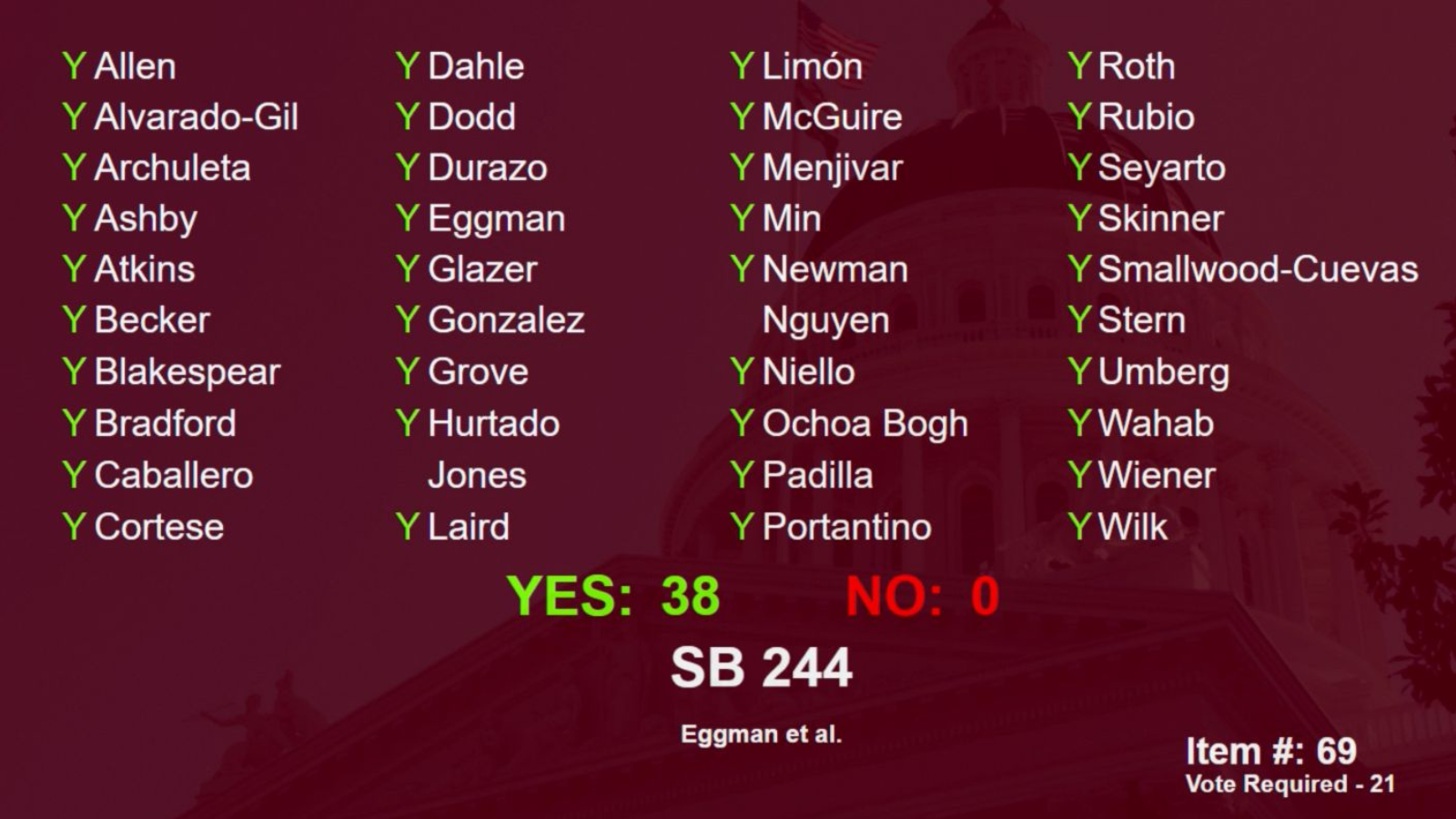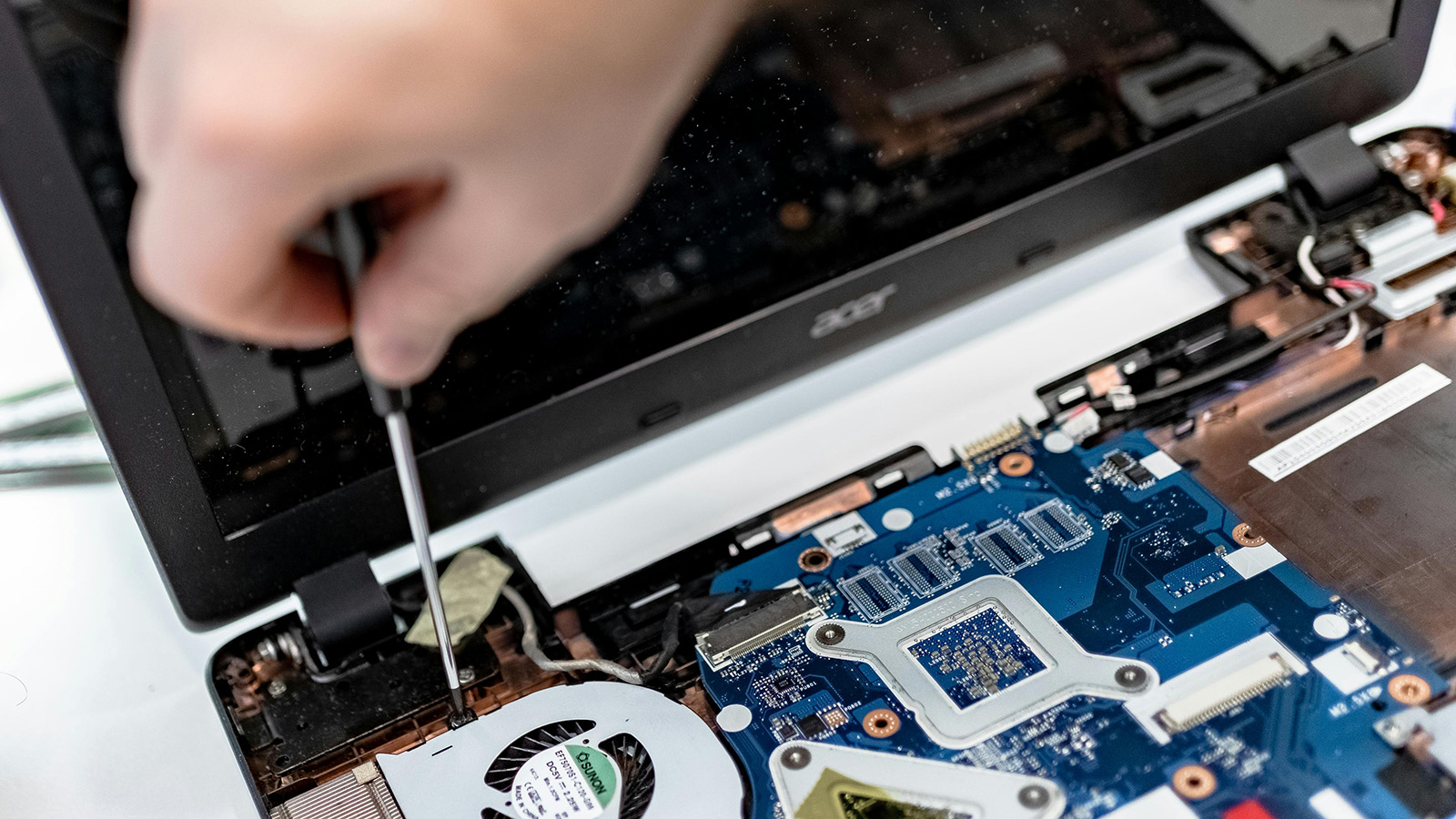
5 reasons that passing the ‘Right to Repair Act’ through the California Senate is a big deal

The California state Senate passed Sen. Susan Eggman’s (Stockton) Right to Repair Act (SB 244) on Tuesday with a 38-0, bipartisan vote. The bill would significantly expand consumers’ and independent repair shops’ access to the necessary parts, tools and service information required for repairing consumer electronics and appliances.
This is a huge victory for anyone who’s ever been faced with limited options when their phone, fridge or other household electronics break down. For the hundreds of advocates and repair businesses and the untold number of consumers supporting Right to Repair, we’re one huge step closer to making that happen.
Why is this step in California such a big deal? Here are five reasons.
- It’s the furthest a Right to Repair bill has advanced in the state.
Advocates have been pushing for Right to Repair legislation in California for 5 years. Similar bills have died in the Senate Appropriations Committee the past two years after intense industry lobbying efforts against their passage. But industry opposition was unable to stand up to the momentum we’ve generated among our partners and the public.
- It’s in Silicon Valley’s backyard.
California is home to Apple, Google and other tech giants that have historically lobbied heavily against Right to Repair legislation. If you can pass Right to Repair in Silicon Valley’s home state, you can pass it anywhere. That has big impacts both in California and across the country.
- It’s a sign that the repair movement’s momentum is proving hard to stop.
With a bipartisan, nearly unanimous vote, passage of a strong Right to Repair bill by the California Senate makes clear that public support for the Right to Repair in the state has grown amid a swell of national momentum. Our survey found that 75% of Californians support Right to Repair, including majorities of Democrats, Republicans and Independents.Given its popularity, it’s no surprise that New York, Colorado and Minnesota all passed their own Right to Repair laws in the past year and 28 states have considered or are considering similar legislation in 2023.
Right to Repair reforms are sweeping the nation. It’s an idea that’s time has come.
- It’s a reminder that organizing public support can overcome special interest opposition.
Despite intense industry opposition, we know that the public supports the Right to Repair. California’s Right to Repair Act is backed by 82 independent repair shops, 109 local elected officials, more than 50 environmental and consumer groups, and various other recyclers, school boards and law professors. Mobilizing these constituencies created the groundswell of support and public pressure needed to get our state leaders to side with the public over corporate interests.
- Right to Repair will be a boon to California consumers and the environment.
The Right to Repair Act has big impacts for both consumers and the planet. The bill would bring more competition and consumer choice to the repair marketplace, saving Californians households roughly $5 billion per year. Keeping electronics in use longer is also expected to reduce the amount of electronic waste sent to California landfills and reduce the need for additional mining and production to replace, rather than repair, devices. Californians currently throw away 46,000 cell phones a day and 772,000 tons of electronic waste — which often contains toxic heavy metals — per year. We’re now one step closer to reducing this waste.
The California Right to Repair Act now moves to the State Assembly, and CALPIRG and our coalition of repair enthusiasts will continue working towards a victory in the state. It’s due time that California fixed its laws so that we can fix our stuff.
Topics
Authors
Jenn Engstrom
State Director, CALPIRG
Jenn directs CALPIRG’s advocacy efforts, and is a leading voice in Sacramento and across the state on protecting public health, consumer protections and defending our democracy. Jenn has served on the CALPIRG board for the past two years before stepping into her current role. Most recently, as the deputy national director for the Student PIRGs, she helped run our national effort to mobilize hundreds of thousands of students to vote. She led CALPIRG’s organizing team for years and managed our citizen outreach offices across the state, running campaigns to ban single-use plastic bags, stop the overuse of antibiotics, and go 100% renewable energy. Jenn lives in Los Angeles, where she enjoys spending time at the beach and visiting the many amazing restaurants in her city.
Find Out More

Apple AirPods are designed to die: Here’s what you should know

Best laptops of 2024: The most repairable laptops and why it matters

Amazon displays repair scores for electronics in other countries. Why not here?

